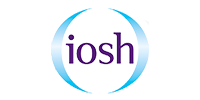ISO 50001 EnMS
Energy management system
What is ISO 50001?
Energy Management System (EnMS) – ISO 50001 is an International Standard developed by ISO (International Organization for Standardization). ISO 50001 provides benefits for organizations large and small, in both public and private sectors, in manufacturing and services, in all regions of the world. ISO 50001 will establish a framework for industrial plants; commercial, institutional, and governmental facilities; and entire organizations to manage energy. Targeting broad applicability across
national economic sectors, it is estimated that the standard could influence up to 60% of the world’s energy use.
Why is it important?
Energy is critical to organizational operations and can be a major cost to organizations, whatever their activities. An idea can be gained by considering the use of energy through the supply chain of a business, from raw materials through to recycling.
In addition to the economic costs of energy to an organization, energy can impose environmental and societal costs by depleting resources and contributing to problems such as climate change.
The development and deployment of technologies for new energy sources and renewable sources can take time.
Individual organizations cannot control energy prices, government policies or the global economy, but they can improve the way they manage energy in the here and now. Improved energy performance can provide rapid benefits for an organization by maximizing the use of its energy sources and energy-related assets, thus reducing both energy cost and consumption. The
organization will also make positive contributions toward reducing depletion of energy resources and mitigating worldwide effects of energy use, such as global warming.
ISO 50001 is based on the management system model that is already understood and implemented by organizations worldwide. It can make a positive difference for organizations of all types in the very near future, while supporting longer term efforts for improved energy technologies.
Organizations of all types and sizes increasingly want to reduce the amount of energy they consume to
- Reduce costs
- Reduce the impact of rising costs
- Meet legislative or self-imposed carbon targets
- Reduce reliance on fossil fuels
- Enhance the entity’s reputation as a socially responsible organization
What will it do?
ISO 50001 will provide public and private sector organizations with management strategies to increase energy efficiency, reduce costs and improve energy performance.
The standard is intended to provide organizations with a recognized frame work for integrating energy performance into their management practices. Multinational organizations will have access to a single, harmonized standard for implementation across the organization with a logical and consistent methodology for identifying and implementing improvements.
The standard is intended to accomplish the following:
- Assist organizations in making better use of their existing energy-consuming assets
- Create transparency and facilitate communication on the management of energy resources
- Promote energy management best practices and reinforce good energy management behaviors
- Assist facilities in evaluating and prioritizing the implementation of new energy-efficient technologies
- Provide a framework for promoting energy efficiency throughout the supply chain
- Facilitate energy management improvements for greenhouse gas emission reduction projects
- Allow integration with other organizational management systems such as environmental, and health and safety
How does it work?
ISO 50001 is based on the ISO management system model familiar to more than a million organizations worldwide who implement standards such as ISO 9001 (Quality Management), ISO 14001 (Environmental Management), ISO 22000 (Food Safety), ISO/IEC 27001 (Information Security).
In particular, ISO 50001 follows the Plan-Do- Check-Act process for continual improvement of the Energy Management System.
These characteristics enable organizations to integrate energy management now with their overall efforts to improve quality, environmental management and other challenges addressed by their management systems.
ISO 50001 provides a framework of requirements enabling organizations to:
- Develop a policy for more efficient use of energy
- Fix targets and objectives to meet the policy
- Use data to better understand and make decisions concerning energy use and consumption
- Measure the results
- Review the effectiveness of the policy
- Continually improve energy management
ISO 50001 can be implemented individually or integrated with other management system
standards.
ISO 50001 Benefits
Like all ISO management system standards, ISO 50001 has been designed for implementation by any organization, whatever its size or activities, whether in public or private sectors, regardless of its geographical location.
ISO 50001 does not fix targets for improving energy performance. This is up to the user organization, or to regulatory authorities. This means that any organization, regardless of its current mastery of energy management, can implement ISO 50001 to establish a baseline and then improve on this at a rhythm appropriate to its context and capacities.






